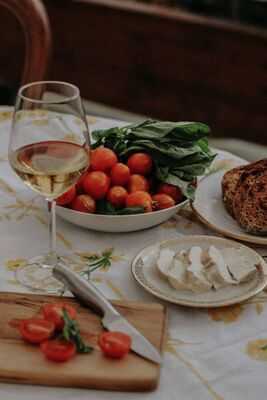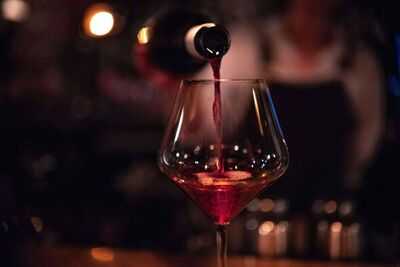
It's enticing to believe that a half-opened bottle of wine will taste just as delightful several days later, but unfortunately, that's seldom the reality. Even the most exquisite vintage has a restricted timeframe once the cork has been removed.
The moment oxygen comes into contact with your wine, the countdown begins, and how long it remains palatable depends entirely on the variety of wine and storage methods. Colin Simpson, wine specialist at Into the Vineyard, revealed that one of the most common misunderstandings people harbour about wine concerns how long it genuinely lasts after opening.
"Many people believe an open bottle of wine can sit around for a week or more, but that's simply not true," Colin said. "Wine is a living product that continues to change with air exposure. While some oxidation is necessary to open up the flavours, too much of it quickly causes those beautiful notes to fade."
He explained that the secret to maintaining wine's proper taste was grasping what oxygen does to it and collaborating with it rather than fighting against it.
"Oxidation is wine's greatest frenemy," Colin said. "A bit of air brings out the bouquet and complexity, but leave it too long and it starts to spoil. That's why storage makes all the difference between pouring a crisp, fragrant glass or something that tastes more like salad dressing."
How long different wines last after openingThe longevity of an opened bottle differs significantly depending on whether it's red, white, sparkling or fortified. Here's what Colin suggests for each variety.
 White and rose wines
White and rose wines According to Colin, light whites and roses are among the most delicate once opened.
"You'll generally get around three to five days if you store them correctly," he advised. "That means tightly re-corking or sealing the bottle and keeping it chilled in the fridge. Leave it on the counter and you'll be shocked how quickly it turns sharp and vinegary. You may think it's just losing flavour, but what you're really tasting is oxidation setting in."
He pointed out that fuller-bodied whites like Chardonnay might last a little longer due to their richer texture and oak influence, but they still need to be kept cold. Sweet wines such as Riesling, thanks to their higher sugar content, also hold up slightly better, sometimes up to a week.
Red winesRed wines tend to fare a bit better, though they too have their limits.
"Reds can stay pleasant for about three or four days, but after 48 hours you'll start to notice subtle changes," Colin explained. "The fruitiness begins to fade, tannins soften, and the wine starts to feel flat. If you leave it any longer, you might pick up sour or metallic notes."

He recommended re-corking the bottle and keeping it in a cool, dark place, and not the fridge, which can dull the flavours too much for many red varieties. Lighter reds like Pinot Noir tend to spoil faster than bolder wines like Cabernet Sauvignon or Syrah because they contain fewer tannins, which act as natural preservatives.
Sparkling winesWhen it comes to sparkling wines, the situation is entirely different.
"Champagne and Prosecco are the most sensitive of all," warned Colin. "Once opened, you'll start losing bubbles almost immediately. Even with a proper stopper, you're only looking at one to two days before it goes flat."
He recommended investing in a top-notch sparkling wine stopper that retains carbonation and always storing it in the fridge. Using a makeshift cover like cling film, he added, "won't do much. It's better than nothing, but not by much".
Fortified winesHowever, not all open bottles need to be polished off in a single weekend. Fortified wines such as Port, Sherry, and Madeira can last considerably longer due to their higher alcohol content.
"These wines are far more resilient," Colin stated. "A good Port can last several weeks after opening, sometimes even a month if it's stored in a cool, dark place and sealed properly. Sherry is similar, though Fino and Manzanilla styles are more delicate and should still be enjoyed within a few days."
Wine storage adviceColin emphasised that proper storage was just as crucial as knowing how long a bottle lasts.
"If you want to extend your wine's life, treat it gently," he advised. "Keep it away from sunlight, re-seal it tightly, and refrigerate when possible. Using a vacuum pump or inert gas spray can also help limit air exposure, as they're great tools for wine lovers who don't always finish a bottle in one go."
For those who struggle to finish an entire bottle, he recommended transferring any remaining wine into a smaller vessel to minimise the air space within.
"It's a simple trick that can make a noticeable difference," Colin added. "Less air in the bottle means slower oxidation and a fresher pour next time."
In the end, he emphasised, wine should be consumed during its optimal period rather than pushed beyond its boundaries: "Wine is meant to be savoured, not stored indefinitely once opened. Enjoy it while it's still vibrant and expressive, because that's when it shows its true character."
You may also like

Bihar polls: Parties' caste arithmetic vs caste survey — who is living upto Karpoori's dream?

India must present its version of stories to the world: I&B Ministry

Lando Norris vs Oscar Piastri verdict as McLaren F1 star 'doesn't look like a champion'

Diwali Special - Light lamps in these places in your home on Diwali to improve your luck. Learn the full details.

Sports News - Rohit Sharma's fierce side is on display during the practice session, showing off his swagger before the match







